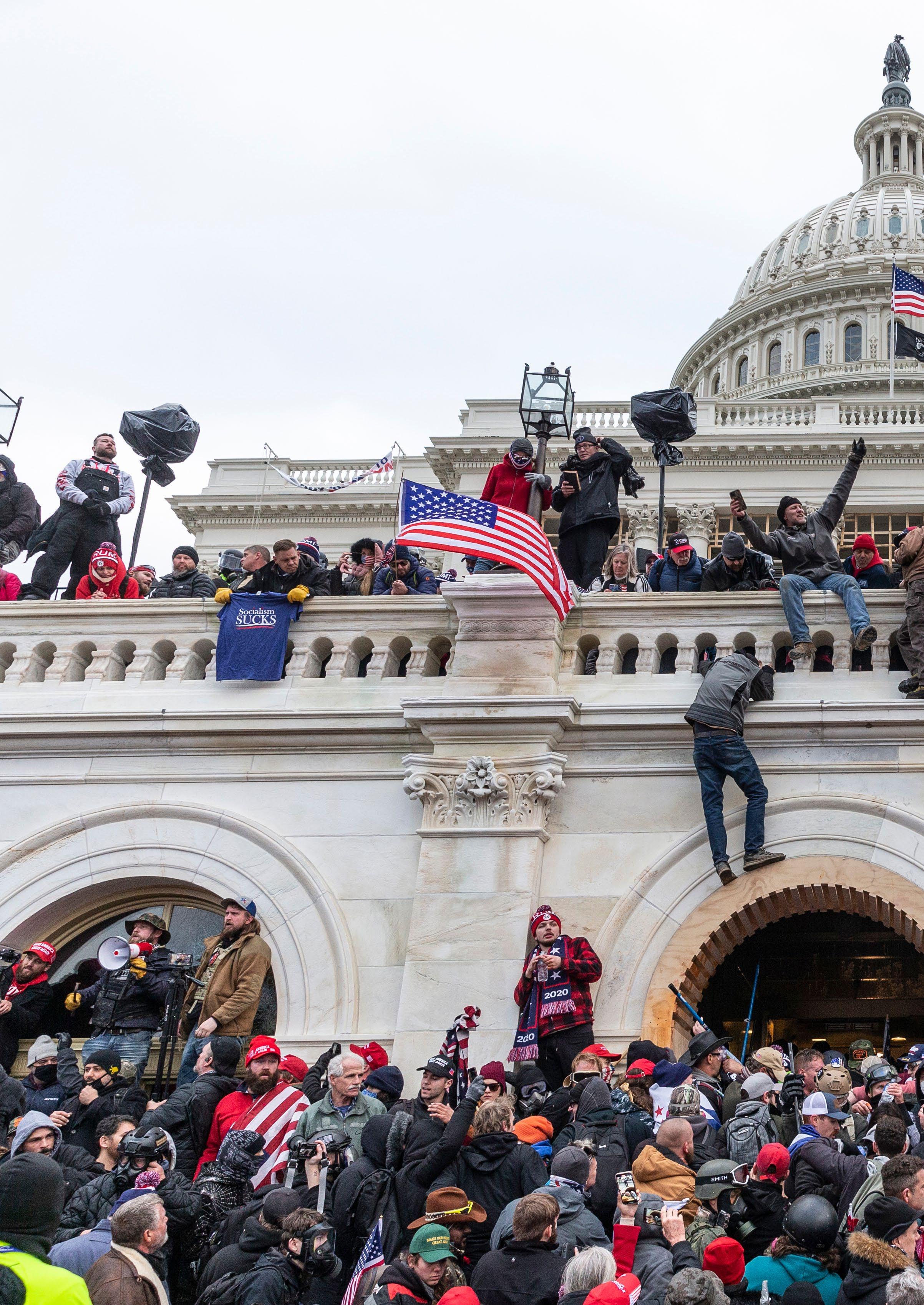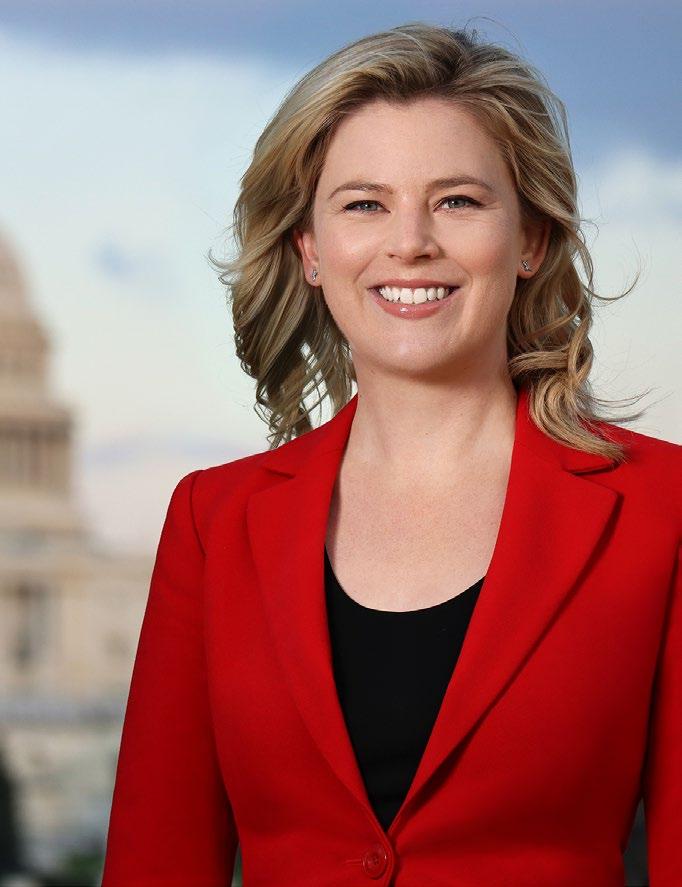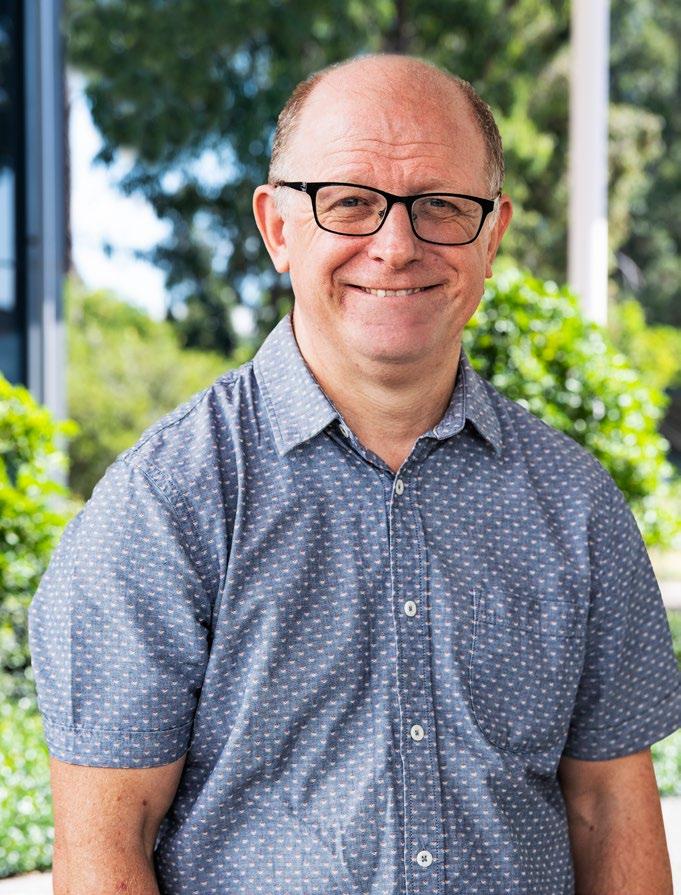
8 minute read
How do we regain the upper hand in the fight for facts?
The Big Question sheds light on a topical issue of global relevance, providing a platform for some of Bond’s best and brightest academics and alumni to share their unique perspectives.


Annelise Nielsen (Class of 2008) is the Washington Correspondent for Sky News Australia.
2020 was chaotic, lonely, scary, surreal and universally exhausting. It was, of course, as so many of us in the media liked to remind you time and time again *unprecedented*. Never has the world faced a pandemic when we’ve been this interconnected and susceptible to the global channels that have forged our modern world. However, one thing that really is not new is misinformation. Even if the stakes feel higher than they’ve ever been.
Journalism was borne of the need for truth, facts and accountability. That has not and will never change. But the challenges do.
The immediate task of reporting on the pandemic was, in reality, not that complicated. Even if it was mind-boggling to watch as the world closed in on itself, the process of reporting the facts was quite simple. Case number updates, government press conferences and epidemiologists ran on high rotation.
Scrutinising the government response became more complicated. There were no previous attempts we could draw comparison to when the government came out with plans to lock down borders, ground planes and pour billions of dollars into the economy. While our days and nights were consumed with the purpose and planning of a news bulletin, we never lost track of the need for straightforward facts.
It’s been a year that’s pushed everyone to the limit. In the face of lives being restricted in ways we’d have never dreamed, it’s easy to see how minds and clicks wander into far flung recesses of the internet trying to make sense of an incomprehensible year. Particularly those who’ve lost their livelihoods or loved ones.
It’s always painful to see wild conspiracy theories climb their way up people’s social media profiles. Often, you’ll see them holding tight to their assumption and working to find anything that supports it. And this is where we see the unique challenge of reporting in the modern age.
The never-ending barrage of information that anyone can post online easily takes on a life of its own. It takes a certain mettle to hold out against the online onslaught and quickly sort out the facts. It’s the reason why in this time of crisis we have more people tuning in to our news than they ever have before.
The truth is, truth will die when we stop listening to each other. I can speak facts I have verified and know to be true, but convincing people to listen and accept them is a separate challenge. There are no alternate facts, but interpretations do come from different points of view. You never shout anyone out of an opinion. Contempt for each other is the birth of misinformation. So if you’d like to know how to support more facts in a very complicated and scary world, the best way to start is by listening.

Dr Richard Matthews is Associate Professor of Medical Ethics at Bond University.
‘Anti-vaxxer’ is a terrible term. It conjures up the image of the irrational, irresponsible, reprehensible parent - often a woman - the science hater that wilfully exposes their children, other children and the larger population to the dangers of various infectious diseases. It is highly stigmatising, in that it generates a mark of disgrace in the public mind. Thereby it exposes the population so designated to ridicule, humiliation and the possibility of coercion and violence – all ‘legitimated’ in the minds of those who hold the stigma.
Why is such a stigma so terrible? If the dehumanisation of the population isn’t already significant enough, consider its impact in medical ethics. Foundational to modern clinical and research ethics and much of public health is the idea of respect for persons. Each person should be treated as an agent with their own life histories, interests, values and goals. As health workers, we are obligated to treat such agents respectfully. Conversation and dialogue are thereby the foundation of any legitimate health care encounter. If we stigmatise and humiliate a given population, then we destroy the possibility of dialogue before we even begin. We assume the irrationality of the agent; we assume that they are dangerous and immoral and we immediately reach for coercive and violent means in order to deal with them – for example, mandatory vaccinations, exclusion of unvaccinated children from schools and other important public goods, among other things. For this reason, we must use the language of vaccine-hesitancy, instead of ‘antivaxxer.’
We forget that every person has a story. Stigmatising language encourages us to overlook that people have reasons – for good and ill – for their choices and that effectively engaging with them requires us to understand their histories and their reasons. Many who are vaccine-hesitant have had terrible experiences with healthcare workers. Terrible experiments – including on vaccinations - have been carried out on oppressed individuals and groups and the primary investigators were doctors, nurses and other healthcare professionals. If you, your parents, grandparents, siblings, had been poorly treated and exploited by researchers and healthcare workers, then surely it would be rational for you to approach any healthcare interventions cautiously. The lesson is that we have to understand people’s stories. With care, love and good dialogue, much vaccine hesitancy can be overcome. With humility, we can acknowledge the legitimacy of refusal for those who remain hesitant. The right to refuse is foundational in health ethics and needs to be recognised and worked with, not crushed.


Tatiana Carter (Class of 2017) was Dux of Bond’s February 2021 graduation cohort. Her Master of Communication thesis examined the spread of COVID-19 disinformation and conspiracy theories.

In the battle between truth and lies, fact and fiction, only one thing is certain: Disinformation is fighting to win. For social media users across the world, this new reality is not so easily understood.
Last year, social media played an integral role in the global fight against COVID-19. Although more people were connecting and participating in pandemic-related conversations online, trust in the media continued to hang in the balance.
From conspiracy theories about COVID-19, to claims of mass voter fraud, to disarray at the US Capitol – social media users have been buried under piles of false information. Like an information dumping ground, the current social media ecosystem is littered with garbage.
While some of the information is unintentionally false (misinformation), there has been a growing network of bad actors using the platform to intensify political divisions and weaken democracies around the world. This deliberate and intentional spread of false information is known as disinformation.
In a recent study I conducted about the spread of COVID-19 disinformation through Twitter, I uncovered a significant presence of conspiracy theories and intentionally false information within the network. Looking at 5000 individual Twitter posts, I was able to gain a better understanding of the overall landscape.
Online, medical conspiracy theories about the use of Hydroxychloroquine and the far-right conspiracy theorist group QAnon dominate public discourse. To spread their problematic messages, some of the disinformation has been disguised as journal articles and professional media.
One of the most unexpected findings of this research was the presence of bot accounts – or automated social media accounts that inflate hashtags, spread propaganda and inflate political and social discourse. Two of the bot accounts shared a deepfake, or synthetic media that alters a person’s likeliness, of North Korean and Russian leaders criticising Western democracy.
As the media continues to be highly polarised, from both the left and right, questions remain about the future of facts: How can we escape the information landfill? The answer: Holding social media companies accountable for content on their platforms.
Although an information gatekeeper (filter) is problematic, it may be necessary to limit the spread of disinformation and conspiracy theories on the internet. Being that companies like Twitter and Facebook are some of the largest publishers in the world, it is time they are held to the same standards and practices of traditional media.
Only by holding social media companies accountable for the actions of their users will we regain the upper hand in the fight for facts.

Give Students A Hand
DONATE TODAY TO THE STUDENT HARDSHIP FUND
A contribution to the Student Hardship Fund will help ensure disadvantaged students receive the help and tools they need to succeed.










